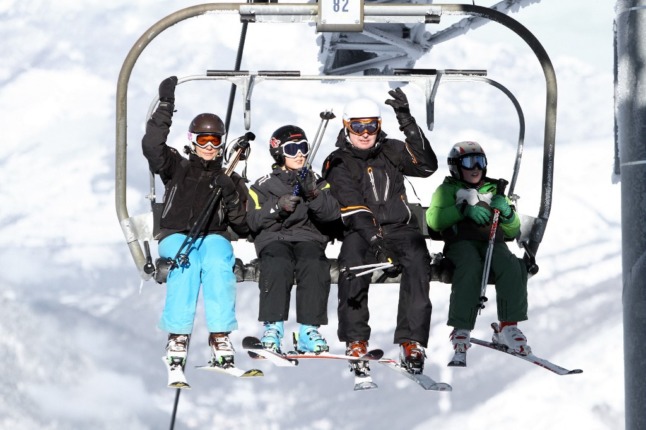Question: I was thrilled to learn that France is again allowing travel from the UK. My husband and I are both fully vaccinated but our daughters – 13 and 15 – have only had a single vaccine dose, are they allowed to enter France?
For any country on the orange or red list for travel to France – which includes the UK, USA and Canada – there are different rules for vaccinated and unvaccinated travellers. While vaccinated people can travel for any reason including holidays, unvaccinated travellers must provide proof that their trip is essential.
But what about children?
Under 12s
France’s rules on vaccination and testing refer only to children aged 12 and over. Under 12s do not need to take a Covid test or provide proof of vaccination when entering France.
Over 12s
Children aged 12 and over are required to present a negative Covid test at the border (taken within 24 or 48 hours depending on where you are travelling from).
They are also required to complete paperwork including declarations of health and must be fully vaccinated.
The definition of ‘fully vaccinated’ is the same as for adults – seven days after receiving two doses of AstraZeneca, Pfizer or Moderna or 28 days after a single dose of Janssen. A single dose of AstraZeneca, Pfizer or Moderna is not sufficient and these people will be counted as unvaccinated.
However, there is an exception for unvaccinated children over 12 who are travelling with fully vaccinated parents/guardians.
In this case, says the French Interior Ministry: “The measures applied to vaccinated adults are extended under the same conditions to accompanying minors, whether they are vaccinated or not.”

So in other words, if the parents are fully vaccinated, the children can travel with them under the same rules and do not need to provide proof that their trip is essential.
They will, however, still need a negative Covid test and a health declaration.
Any under-18s travelling on their own will need to provide proof of either full vaccination or an essential reason in order to enter France.
Health pass
However, once you are in France, you will need a health pass to take part in many everyday activities and those are required for all children aged 12 years and two months or older.
The health pass required either proof of vaccination, proof of recent recovery from Covid or a negative Covid test taken within the previous 24 hours.
The health pass is shortly – exact date is still to be confirmed by January 21st is seen as likely – to become a vaccine pass. Once this change goes through, only proof of vaccination will be accepted.
However the vaccine pass is required only for people aged 16 and over. Children aged between 12 and 15 can continue to use the health pass, which also accepts a recent negative Covid test.
The definition of ‘fully vaccinated’ again requires two shots of the double-dose vaccine, a single dose of AstraZeneca, Pfizer or Moderna is not sufficient. Over 18s may also need a booster shot in order to be considered fully vaccinated.
Over 12s who cannot prove they are fully vaccinated will need to either take a Covid test every 24 hours – at the cost of €22 for an antigen test or €44 for a PCR test for non residents, home-test kits and Lateral Flow Test kits are not accepted for the health pass – or avoid health pass venues.
These venues include cafés, restaurants, gyms, leisure centres, cinemas, theatres, tourist sites, museums, ski lifts and long-distance trains.
READ ALSO What will change when France’s health pass becomes a vaccine pass?



 Please whitelist us to continue reading.
Please whitelist us to continue reading.
Does that mean that when France moves to a vaccine pass, 12-15 years old that are not doubly vaccinated w/2 weeks to make this valid, will not be able to get on lifts as it happens now in Italy? That will affect a lot the half term families trying to go to France, as many had only one shot of the vaccine!